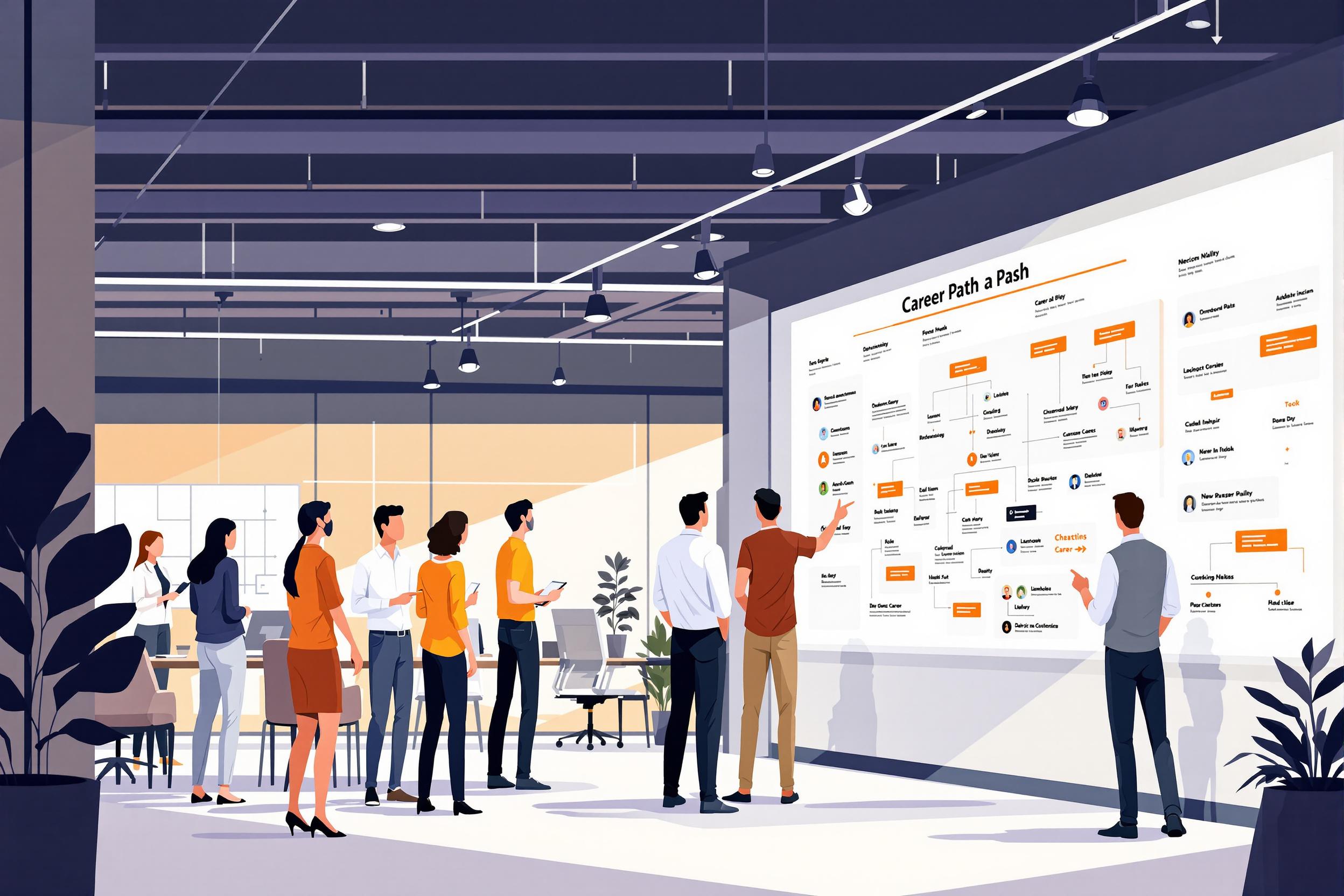
Talent Development
Talent Development is a key business function that focuses on helping employees grow their skills and advance in their careers. It's like having a system in place to help staff members become better at their jobs and prepare for future roles. This includes creating training programs, setting up mentoring relationships, and planning career paths. Companies use Talent Development to keep their best employees engaged and help them reach their full potential. Similar terms include "Employee Development," "Professional Development," or "Learning and Development (L&D)."
Examples in Resumes
Designed and implemented Talent Development programs reaching 500+ employees annually
Led Professional Development initiatives resulting in 30% increase in internal promotions
Created comprehensive Learning and Development strategy for global organization
Managed Talent Development budget of $1M for employee training and certification programs
Typical job title: "Talent Development Specialists"
Also try searching for:
Where to Find Talent Development Specialists
Professional Associations
Online Resources
Professional Networks
Example Interview Questions
Senior Level Questions
Q: How would you develop a company-wide talent development strategy?
Expected Answer: Should discuss needs assessment, budget considerations, getting buy-in from leadership, measuring ROI, and creating programs that align with business goals. Should mention experience with both short-term and long-term planning.
Q: How do you measure the success of talent development programs?
Expected Answer: Should describe various metrics like employee retention rates, promotion rates, skill assessment scores, employee satisfaction surveys, and return on investment calculations. Should emphasize the importance of both quantitative and qualitative measures.
Mid Level Questions
Q: What methods do you use to identify training needs in an organization?
Expected Answer: Should mention conducting surveys, analyzing performance reviews, speaking with managers and employees, reviewing business objectives, and using skills gap analyses.
Q: How do you ensure training programs are engaging and effective?
Expected Answer: Should discuss using various learning methods (workshops, online courses, mentoring), gathering participant feedback, incorporating real-world examples, and following up to ensure learning transfer.
Junior Level Questions
Q: What's your experience with different training delivery methods?
Expected Answer: Should be able to discuss basics of in-person training, virtual learning, self-paced courses, and blended learning approaches. Should show understanding of when each method might be most appropriate.
Q: How do you stay current with talent development trends?
Expected Answer: Should mention reading industry publications, attending workshops or webinars, participating in professional associations, and following thought leaders in the field.
Experience Level Indicators
Junior (0-2 years)
- Basic training program coordination
- Learning management system use
- Workshop facilitation
- Training material development
Mid (2-5 years)
- Program design and implementation
- Needs assessment and analysis
- Budget management
- Stakeholder management
Senior (5+ years)
- Strategic program development
- ROI measurement and analysis
- Leadership development
- Cross-functional project management
Red Flags to Watch For
- No experience creating or delivering training programs
- Lack of measurement or evaluation experience
- Poor communication or presentation skills
- No knowledge of adult learning principles
Need more hiring wisdom? Check these out...

Unlock Hidden Talent: How Internal Rotation Programs Spark Career Exploration and Boost Retention

Effective Talent Acquisition Methods: A Strategic Guide for 2025

Unlocking Hidden Talent: Spotting Transferable Skills in Non-Traditional Candidates

